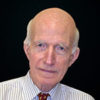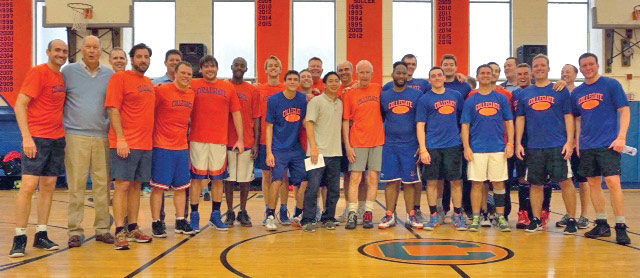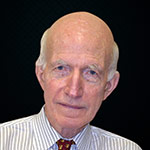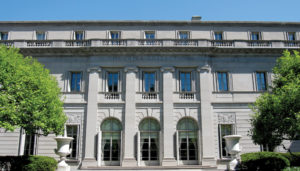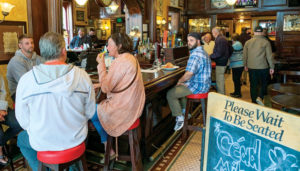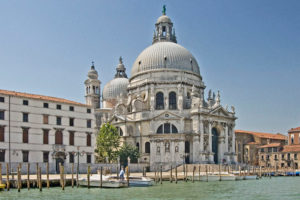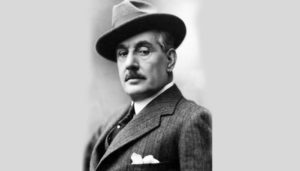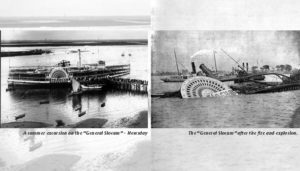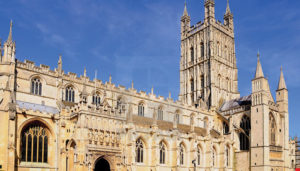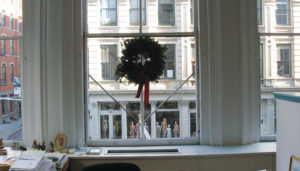The elementary school I attended in New York City, a private day school for boys, went from grades one through eight. In those days, boys were then expected to go to boarding school for the next four years. Thus, in the fall of 1951, I arrive at a boarding school in Pennsylvania, light years away, or so it seemed to me, from the pulsating pavements of New York City.
Born and raised in New York, I hated being stuck seven days a week at a school where I had no friends, in a town without sidewalks in the middle of nowhere. I decide to run away. One Saturday morning I get on my bike and start pedaling in the direction of Philadelphia, low on cash, ultimate destination unknown.
After several hours on the road, I make a second determination: To turn back. I am hungry and do not want to miss lunch. No one at the school ever knows I ran away and few would care if they did know. Thus ended a pathetic effort to relieve my unhappiness.
But mother knew. Loud and clear, I tell her, “I’m not going back.” She being wise, firm and fair, experienced in life’s vicissitudes, having come by herself to these shores as a refugee from Russia in 1919 at age 16 and become a widow at age 33, with two children to support, one as yet unborn, responded, “You are going back to finish the 9th grade and then we will look for a day school for you in the city.” In love with the city herself, she was sympathetic to my unhappiness. And mother knew a lot about homesickness, having been separated for years from her family and friends, country (Russia), city (St. Petersburg), and language — the daily use of Russian.
Months later, I appear in the office of Wilson Parkhill, headmaster of Collegiate School, located on the West Side of Manhattan on 77th Street between Broadway and West End Avenue. Rising from his chair, Mr. Parkhill stood 6 feet 4 inches tall. He welcomes me warmly to the school. In his presence, I no longer feel like a failed human being. My one year as an outcast has come to an end.
Collegiate School was founded in 1628 by Dutch settlers living in New Amsterdam. They were members of the Dutch Reform Collegiate Church, hence the origin of the school’s name. Three years earlier, New Amsterdam had become the seat of government for the Dutch colony. Forty years later, in 1674, the colony was ceded to England and renamed New York. Collegiate may well be the oldest educational institution in North America, certainly older than Harvard, founded in 1636.
I start Collegiate in the 10th grade in the fall of 1952. There are 21 boys in the class. The high school occupies a small, austere space of five classrooms on the top floor: One a lab, two enclosed rooms, and two where the classrooms and hallway are separated only by a partition. I remember a book being thrown from the classroom over the partition, hitting the Latin teacher passing in the hallway on the head.
One day I meet with Mr. Parkhill in his office to suggest that Collegiate establish a soccer team. The school had a six man football team, but no soccer program. I had come from a school founded by two Englishmen where, English-style, they started us off on soccer in the first grade. Mr. Parkhill was receptive. How pleased I was that he accepted my advice. In the 1940s, few schools in New York played the game. Soon thereafter, the Collegiate School soccer team took to the field for the first time in Central Park, only blocks away.
Basketball was my favorite sport. I was captain of the team and played center because of my height. The school’s basketball gym at the time was tiny and had low girders. A set shot required the shooter to shoot over the bottom bar of the girder. We did fairly well in home games, being used to this unusual architectural configuration, but less well on an open court.
Each senior met with Mr. Parkhill to discuss his college aspirations. Mine did not appear promising, ranking, as I did, in the bottom half of the class. It was believed by Mr. Parkhill, however, that I possessed other attributes.
For example, without knowledge of any one in authority at the school, I had prepared a lengthy report recommending a reorganization of the school. My classmates couldn’t believe it. Mr. Parkhill took things in stride, amused by the effort. The only casualty was Henry Adams, our wonderful English teacher, who made books come alive for me in a way I had never experienced. His anguish arose from the many spelling errors. “Why, oh why, had I not shown it to him in advance,” he moaned. Each misspelled word he considered a blot on his reputation. (A search of the school archives years later did not yield a copy of my report. It may have been thrown out.)
I told Mr. Parkhill I wanted to go to Harvard and could not imagine myself being happy at any other place. He indicated that, given my grades, my request would present him with a considerable challenge, but he would do his best. (Today, I would be told to consider only “safe schools.” Thank goodness, the term had not yet been invented,)
Mr. Parkhill performed admirably. I was admitted in the category of “late bloomer.” I then asked him to arrange to have me bring my dog to college. I felt confident he would do so, since he owned two dachshunds. He did try, but without success. “Dean, yes, but not the dog,” the heartless Harvard administrators informed him. Penny was not a family pet, she was solely mine. With great pain, Penny and I parted, she to another home.
I let Mr. Parkhill down at first, having to inform him that I had been placed on academic probation with two D grades, Economics and Spanish being the courses that did me in. Galvanized by this awful experience, I buckled down, and following a change in my major from Government to English, graduated with honors. While not fully blooming, the semblance of a petal had emerged.
And now fast forward to 2017. Last fall I received this communication from Collegiate: All former varsity basketball players are invited to play one last game before the school moves to its new building, following which, the present building will be demolished. On the appointed day and hour, I appear at the school.
Two dozen young men are milling about preparing to play. They look at me in puzzlement. Who am I? What am I doing here? I feel the need to explain: “Gentlemen,” I say, “you are in the presence of the captain of the Collegiate School varsity basketball team for 1955.” They are mightily impressed and welcome me. A bond exists among basketball players.
We are divided into two teams, Orange and Blue, the colors of the Dutch. I am delighted that the school remains true to its origins. I am given an orange shirt emblazoned with “Collegiate” on the front.
We play a fun, rollicking game, but late into the proceedings, with only minutes remaining, I have yet to make a basket. I say to the player guarding me, “It takes so little to give me pleasure in life. One basket and I can boast about it for the remaining days of my life.” When the ball next comes to me, this kindly soul steps back to give me room to shoot. SWISH! My teammates cheer. The Blue shirts cheer. The spectators cheer. At the conclusion of the game, a grandmother my age comes down from the stands to say, “What a nice one-hand shot you have.” I am very happy.
We gather for the team photo. I move to the back row to stand with the other tall players. The Athletic Director shouts, “Bill, I want you front and center.” I oblige.
I leave the cheerful, milling throng to bid a personal farewell to the school. This I want to do alone. First, I go to the school clock bearing the inscription, “Improve the Flying Moments.” During my three years as a student at Collegiate, I passed by the clock many hundreds of times. I have sought over the years to follow this wise counsel. Now, in the eighth decade of my life, the words have greater urgency. Then I climb the stairs to the top floor and enter the empty classrooms where decades earlier I had been a student.
My memories will outlast the building.
Author can be reached at [email protected]



